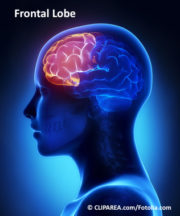Most of us have more to do than time to do it. We juggle family and job responsibilities, friends, household management, social media, errands, plus a great deal more. And for those of us who are musicians, we’re always trying to find practice time at our instrument. How well we’re able to manage the competing demands in  our lives and actually get things done depends on a set of cognitive processes under the umbrella term of executive function.
our lives and actually get things done depends on a set of cognitive processes under the umbrella term of executive function.
Good executive function (EF) makes it possible for us to manage ourselves and our resources – to prioritize, stay focused on the task at hand, manage our time, think before acting, be flexible and creative when the unexpected occurs, and maintain some semblance of emotional control when someone challenges us and we may feel like striking back in an inappropriate way.
Good executive function has been found to predict school readiness and success in school at all grade levels, even more than IQ. And significantly for this series of posts about “why study music,” numerous studies have shown that learning to play a musical instrument and studying music improves executive functioning not only in children but also in adults.
What are the cognitive skills known as executive function(s)? If you read several different research articles about EF, you are likely to see slightly different lists of mental skills, but the three key areas are: inhibition or inhibitory control, working memory, and cognitive flexibility. The higher-level cognitive functions of reasoning, problem-solving, and planning are built on the three core areas – as is creativity.
Inhibitory control means the ability to control your attention, behavior, and emotions to do what’s appropriate or what needs to be done. It means focusing on goals, prioritizing, staying on task or message despite distractions. Inhibitory control (sometimes called impulse control) means we choose how to act or what to pay attention to rather than being at the mercy of our emotions or impulses. A person who lacks inhibitory control reacts reflexively or impulsively without thinking about consequences, striking back at someone who has hurt his feelings rather than attending to the task at hand. A person with poor inhibitory control flits from one thing to another without regard for importance and with little focus.
Working memory (WM) involves holding information in your mind and being able to mentally work with it. There are two kinds of WM – verbal and non-verbal. We need verbal working memory to make sense of a class lecture or a story – remembering what has come first to relate it to what comes later.
We use non-verbal WM when we do math in our heads, incorporate new ideas into our thinking or reorganize an errand list as we are driving. WM is not the same as short-term memory, in which you hold information in your mind just long enough to use it. The classic example of short-term memory is remembering a phone number long enough to punch it into your cell phone. But I prefer an example using chocolate mousse – a favorite dessert. If someone tells me a short recipe for chocolate mousse, keeping the recipe in my mind long enough to find a pen and write it down involves short-term memory. Mentally playing in my mind with how to substitute ingredients so that I can make it dairy free uses working memory.
Working memory is important for mentally seeing relationships between ideas, for reasoning and critical thinking, for seeing the connections between seemingly unrelated things, which is crucial for creativity.
Cognitive flexibility is the ability to think “outside the box,” to shift gears and see things from different perspectives, whether visually shifting an image in your mind or looking at a situation from someone else’s point of view. Cognitive flexibility is the ability to adapt to new circumstances, to accept if you are wrong, to take advantage of new opportunities, to constantly update and monitor your situation to adapt. That can mean adapting so that you stay focused on your goal, or adapting to take advantage of new information or opportunities.
Executive functions have usually been associated with the prefrontal cortex in the brain, the part of the frontal lobe directly behind our forehead. But other brain areas may be involved as well. (Alverez & Emory 2006.)
cortex in the brain, the part of the frontal lobe directly behind our forehead. But other brain areas may be involved as well. (Alverez & Emory 2006.)
Why is good executive functioning important?
Adele Diamond, professor of developmental cognitive neuroscience at the University of British Columbia, is at the forefront of executive function research. Her article, “Executive Functions,” is a wide-ranging discussion of EF’s and discusses why they are critical for success in school, in a career, in quality of life, as well as in mental and physical health. On the other hand, poor EF skills have been shown to lead to social problems, including crime, reckless behavior, emotional outbursts, and violence.
In “Want to Optimize Executive Functions and Academic Outcomes?: Simple, just nourish the human spirit,” Diamond speaks to activities such as music-making that engage a child’s passion, make success possible through disciplined practice, encourage the strengthening of executive functions, and instill confidence – all leading to stronger academic achievement.
How does studying a musical instrument improve executive function?
Musicians need good inhibitory control. We must focus our attention, set goals, prioritize practice over other activities, plan how to get a piece learned whether we are performing it in the next week or the next month, focus on the pieces that need the most work. We must maintain emotional control if we have a bad performance and not run offstage yelling, screaming, or crying – even if we feel like it. Or as an oboist friend recently told me, maintaining his composure on stage when he had just played an obvious wrong note in a very exposed orchestral solo.
We use working memory constantly – keeping in mind what we just played to know what comes next, or remembering the new information that the conductor or teacher tells us and incorporating it into our interpretation of the piece.
We must have cognitive flexibility. If a conductor suddenly takes a faster tempo, we must be prepared to play faster. We try different interpretations of a piece, different phrasing, tempo, dynamics. As we practice, we think about how the piece will sound from the listener’s perspective. We’re constantly listening to the sound we produce and making adjustments if it’s not what we want. We problem solve each time we learn a new piece – what fingering to use here, how to play 4 in the time of 5 there, how to pedal to get clarity. And we problem solve when we play in different venues, figuring out what to do differently to make a piece work in a larger or smaller hall, in a space that is drier or more resonant.
We self-monitor – measuring how we currently play a piece with how we want it to sound – or perhaps with how our favorite pianist, sax player, or orchestra plays it. Musicians can relate to needing every skill associated with executive function.
And sure enough, researchers have found in multiple studies that not only do musicians have stronger executive function than non-musicians, but that studying a musical instrument improves executive function. It is true that other kinds of activities, such as sports, martial arts, and mindfulness practice improve some aspects of executive function, but music seems to address more EF skills.
Executive functioning develops gradually through childhood and peaks in our mid-twenties, but we can continue to develop and strengthen it throughout adulthood, and numerous studies point to the improvement of executive function in children and adults who have studied music.

When a child or adult is learning to play an instrument, concentration is required, as is self-discipline, problem solving, working memory, planning practice time, and flexibility in switching between tempos, styles, keys. A child is strengthening executive function when he learns that in C Major, there are no black keys. But in D Major, both F and C are #’s and are played on black keys. Different key, different key signature, different arrangement of white and black keys – requires flexible thinking. And how should you plan your practice when you have a recital in 2 months? You need organization, focused attention, and the ability to prioritize.
Research involving music and executive function
There are multiple studies involving music and executive function. In 2014, a research team at Boston children’s Hospital, led by Dr. Nadine Gaab, explored the effect of musical training on executive functions. (We’re looking at just one study, but if you are interested in more, Gaab’s References can point you in several directions.)
Gaab’s study involved two different groups of subjects. There were 30 adults between the ages of 18 and 35, fifteen of whom were professional musicians and fifteen who were non-musicians. A second group consisted of 27 children between the ages of 9 and 12, fifteen of whom had had at least two years of musical training and twelve children the same age who had no previous musical training. Musician and non-musician groups were matched by education or parental education, parental job status for children and personal job status for adults, household income, and IQ.
All the participants were given a series of cognitive tests to measure cognitive flexibility, inhibition, verbal fluency, working memory and processing speed. (Executive function depends on processing speed.) In addition, the children had a test that required them to switch between mental tasks while they were undergoing an fMRI scan.
And the results? Adult musicians were found to have better working memory and enhanced performance on cognitive flexibility and verbal fluency than adult non-musicians. Child musicians showed better verbal fluency and faster processing speed than the non-musicians. During the fMRI scans and the mental switching test (cognitive flexibility), child musicians showed more activation in the frontal regions associated with executive function than did the non-musicians.
The study shows that not only do children who study music have stronger executive function skills, but that studying music may build those skills. Dr. Gaab cautions that this was not a longitudinal study in which children were analyzed both before and after musical training. So the inevitable question arises: did the children and adults who studied music already have strong executive function skills and that’s why they gravitated towards the study of music which needs those skills, or did they develop EF skills through studying music?
Fortunately, a study came out a few months after Dr. Gaab’s that may have an answer to that question. And we’ll look at that in the next post.